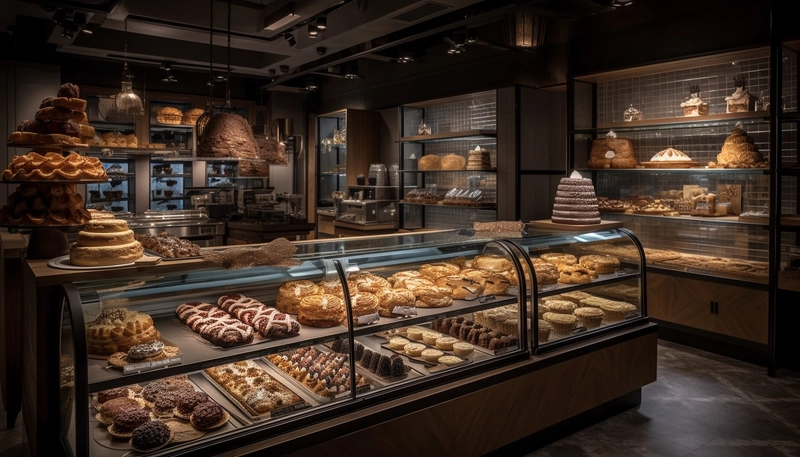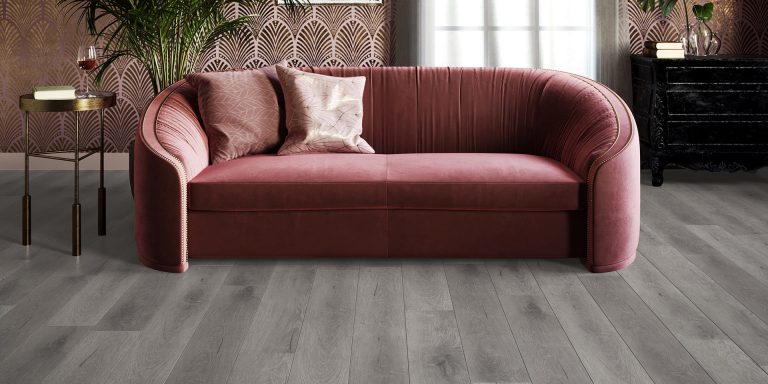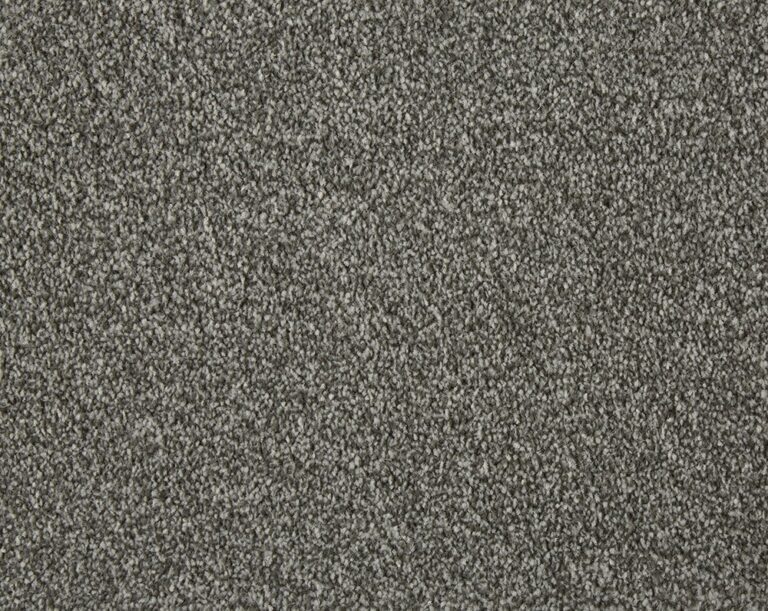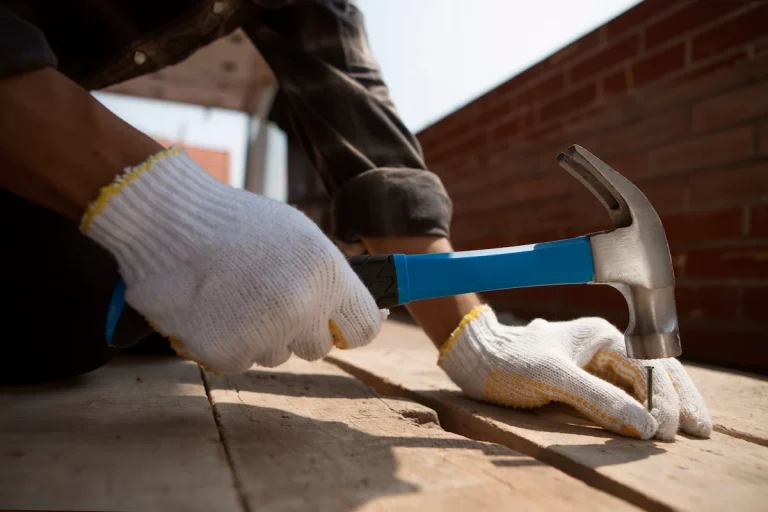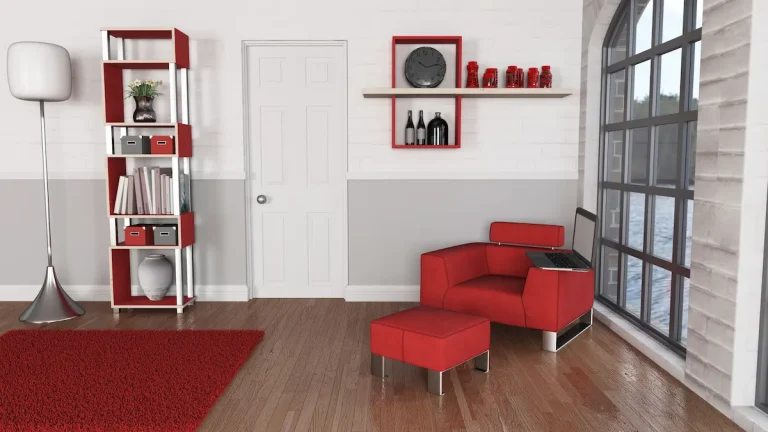Selecting the appropriate flooring for a bakery is essential for both functionality and aesthetics. Given the constant activity in these environments, bakeries require durable surfaces capable of withstanding heavy foot traffic, spills, and exposure to heat. This article examines the key attributes of effective bakery flooring, such as durability, safety, and ease of maintenance.
It also provides a comprehensive review of various flooring types, enabling you to make an informed decision that aligns with the specific needs and style of your bakery. We invite you to explore the optimal flooring options that will ensure your bakery operates efficiently while maintaining an appealing appearance.
What Makes a Good Flooring for a Bakery?
When considering the best flooring for a bakery, several critical factors come into play to ensure that the surface not only meets aesthetic demands but also complies with hygiene and safety specifications essential for a commercial kitchen environment.
The flooring must be durable enough to withstand heavy foot traffic and the weight of industrial equipment, while also being resistant to chemicals and thermal shock from hot baking ingredients, acids, and alkalis.
Additionally, slip resistance is vital to protect staff from trip hazards, and maintenance should be straightforward to prevent the build-up of bacteria and contamination, which can hinder employee hygiene and overall food safety.
Durability and Performance
Durability is a paramount consideration when selecting flooring for a bakery, as it must endure the rigours of a commercial kitchen environment where heavy equipment, foot traffic, and cleaning chemicals are daily norms.
When exploring suitable options, one must consider several key factors that influence the longevity of bakery flooring. From material selection to the flooring’s resistance to potholes or cracks, each aspect plays a vital role in ensuring continuous operation. Different flooring types bring distinct advantages:
- Ceramic Tiles: These tiles are not only aesthetically pleasing but also highly resistant to moisture, spills, and chemicals, making them easy to clean and maintain.
- Resin Coatings: Known for their exceptional durability, resin coatings, including epoxy, polyurethane, and polyurea, offer excellent resistance to wear and can significantly minimise the risk of damage from heavy machinery and high foot traffic.
Both options are capable of withstanding the daily demands of a busy kitchen, providing a resilient surface that can withstand the inevitable challenges faced in food preparation environments and meet health and safety compliance.
Safety and Hygiene
Ensuring safety and hygiene in a bakery setting involves selecting flooring that minimises slip hazards and is resistant to harmful bacteria and contamination. Proper drainage systems should also be considered to prevent standing water.
Regarding safeguarding both employees and customers, the choice of flooring surfaces is crucial. Slip-resistant surfaces not only reduce the likelihood of accidents but also contribute significantly to maintaining a clean environment.
In a bustling kitchen, where spills are common, having materials that provide adequate traction is essential. Among the effective options available, epoxy, polyurethane resin, and polyurea coatings stand out for their remarkable qualities. These materials offer not only a resilient surface that greatly enhances slip resistance but also assist in promoting hygiene.
- Both epoxy and polyurethane are non-porous, making them less likely to harbour bacteria and grime, and easier to maintain.
- Cleaning becomes a breeze, as these surfaces are easy to wipe down and sanitise.
- In addition, their durability ensures they withstand the demands of a high-traffic kitchen, prolonging their lifespan.
By investing in these advanced flooring solutions, bakeries can create safer workplaces and healthier environments for food preparation.
Easy to Clean and Maintain
The ease of cleaning and maintenance is a crucial factor when choosing flooring for a bakery, as it directly impacts hygiene and the overall efficiency of the kitchen operations.
Different flooring types necessitate distinct cleaning strategies, significantly influencing maintenance schedules. For example, ceramic tiles or vinyl flooring can endure regular, intensive cleaning with harsh chemicals without sustaining damage, making them ideal for environments requiring stringent sanitation.
On the other hand, hardwood or laminate surfaces often require more delicate care, as intense scrubbing can lead to wear and tear. An adaptable cleaning regimen is essential this includes:
- Frequent sweeping to remove debris.
- Regular mopping with appropriate disinfectants.
- A strict protocol for deep cleaning to avoid food contamination.
Choosing hygienic surfaces not only simplifies maintenance but also significantly enhances health standards, protecting both the consumers and the establishment. Consider solutions like stainless steel cleaning stations for added sanitary benefits.
Slip Resistance
Slip resistance is a critical attribute of bakery flooring, as it significantly reduces the risk of accidents and injuries caused by trip hazards in a fast-paced kitchen environment. Adhering to safety requirements is essential for preventing workplace accidents.
In commercial kitchens, the choice of flooring materials plays a vital role in ensuring safety and efficiency. Understandably, many professionals explore various options that provide robust slip resistance, such as textured ceramic tiles and specialised resin floorings. These materials not only enhance traction but also contribute to maintaining a clean and hygienic workspace, which is essential in a bakery.
- Textured Ceramic Tiles: These are designed with surface patterns that improve grip, making them ideal for areas prone to spills.
- Resin Floorings: With a smooth finish and customisable textures, resin flooring options can be tailored to meet specific safety standards.
Adhering to established safety standards and regulations is crucial; they ensure that the chosen flooring not only offers slip resistance but also withstands the demanding conditions of a busy kitchen environment.
Resistance to Heat and Moisture
Resistance to heat and moisture is essential for bakery flooring, as the kitchen environment often exposes surfaces to high temperatures and spills that can lead to damage if not properly managed. Choosing the right flooring material is crucial for maintaining an efficient and safe workspace.
When considering flooring options, it is vital to evaluate how well they handle thermal shock and moisture, particularly in a bustling environment like a bakery. Materials such as ceramic tiles are often favoured due to their ability to resist heat and absorb minimal moisture. On the other hand, epoxy coatings provide a seamless surface that is not only easy to clean but also highly resistant to both thermal fluctuations and liquid spills.
- Thermal Shock Resistance: Essential for withstanding sudden temperature changes from ovens and hot cookware.
- Moisture Resistance: Critical for managing the water used in daily cleaning and ingredient preparation.
By selecting products that excel in these areas, such as FoodSafe Slot Drain systems and durable coatings, bakers can ensure a more durable, hygienic floor that supports the intense activities of a commercial kitchen.
Types of Flooring for Bakeries and Commercial Kitchen Environments
Selecting the right type of flooring for a bakery involves understanding the various options available and how they suit the specific demands of a commercial kitchen environment, including durability, maintenance, and safety features.
Ceramic Tiles
Ceramic tiles are a popular choice for bakery flooring due to their hygienic properties and ease of maintenance, making them an ideal option for commercial kitchens and workshops.
In addition, these tiles provide a non-porous surface that effectively resists moisture and stains, which is crucial in the high temperatures encountered in a bakery environment. Their slip-resistance feature enhances safety by reducing the likelihood of accidents on wet floors, safeguarding both staff and customers.
Regarding installation, straightforward methods, such as thin-set or mortar bed techniques, make them a viable option for professionals. Routine maintenance is minimal, generally requiring just regular sweeping or mopping.
Thus, investing in ceramic tiles ensures not only durability against heavy foot traffic and equipment but also promotes a cleaner, safer workspace for bakery operations.
Vinyl Flooring and Coatings
Vinyl flooring is an affordable and aesthetically pleasing option for bakeries, offering durability alongside easy maintenance to meet the demands of a busy kitchen. Additionally, urethane and polyurea coatings can further enhance the durability and performance of vinyl surfaces.
Regarding creating an inviting atmosphere while ensuring functionality, the right flooring choice can make all the difference. Vinyl flooring stands out due to its impressive resistance to spills, which is particularly beneficial in environments where flour, sugar, and liquid ingredients are frequently present. Not only does it come in diverse styles mimicking wood and tile finishes, but it also provides a soft underfoot, reducing fatigue for those long hours spent baking. Additionally, commercial kitchen tiles complement vinyl in high-traffic areas. Cleaning becomes a breeze, requiring a simple wipe down or mopping to keep surfaces pristine.
- Pros:
- Durable and long-lasting
- Aesthetic versatility and design options
- Water resistance
- Cons:
- Can be prone to scratches
- Not biodegradable
With so many options available, selecting the perfect vinyl flooring that complements the unique design of a bakery can truly elevate its overall ambience. Urethane coatings can enhance durability, offering additional protection against wear and tear.
Epoxy Flooring
Epoxy flooring is a seamless solution that provides a hygienic surface while ensuring durability and resistance to chemicals, making it an excellent choice for bakery environments.
This type of flooring stands out not only for its sleek appearance but also for its ability to prevent bacteria buildup, which is crucial in a setting where food safety is paramount. The seamless design eliminates cracks and crevices where dirt and germs can thrive, offering peace of mind to bakers and customers alike.
Epoxy flooring’s resistance to harsh cleaning chemicals allows for effortless maintenance and sanitation, ensuring that any spills or messes can be addressed quickly and efficiently.
- Installation methods range from a simple pour-over application to more complex layering processes, suited to fit specific space requirements. Mechanical finishes can also be added for enhanced texture.
- Epoxy is highly customisable, which means colours and patterns can be tailored to reflect the bakery’s brand aesthetic.
- FoodSafe Slot Drain systems can be integrated for optimal hygiene.
In practical applications, a bakery can truly benefit from this flooring option, as it not only creates a visually appealing environment but also fosters a clean and safe workspace for baking operations.
Concrete Flooring and Pot Hole Prevention
Concrete flooring is often preferred in industrial bakeries due to its exceptional durability and ability to withstand heavy traffic and equipment, which is crucial for maintaining a productive work environment where efficiency and safety are of paramount importance. Proper maintenance can prevent common issues such as potholes.
One of the primary benefits of opting for concrete flooring is its long-lasting nature, which translates to fewer replacements and repairs over time. This stability not only enhances the operational lifespan of the bakery but also contributes to cost savings.
The maintenance requirements cannot be overlooked. Regular cleaning is essential to eliminate food particles and prevent bacterial growth. In addition, proper sealing is vital to ensure the flooring remains impermeable, as any moisture infiltration can lead to contamination and costly damages. Adhering to FoodSafe standards is critical in maintaining cleanliness.
- Regular maintenance ensures hygiene and safety.
- Proper sealing prevents moisture-related issues.
- Durable flooring reduces long-term costs.
While concrete flooring presents certain challenges, its advantages greatly outweigh them, making it a preferred choice for many in the bakery industry.
Rubber Flooring
Rubber flooring offers unique safety benefits for bakeries, providing excellent slip resistance and comfort for staff who spend long hours on their feet.
This type of flooring stands out not only for its exceptional safety features but also for its practical installation process that can be completed quickly, minimising disruptions to daily operations. Rubber flooring is incredibly versatile, which makes it an ideal choice for areas where slip risks are heightened, such as kitchens and prep areas.
- Slip-Resistant Properties: The textured surface significantly reduces the likelihood of slips and falls, ensuring a safer work environment.
- Ease of Installation: Available in various styles, rubber flooring can be laid down quickly, often without the need for adhesives, allowing businesses to remain focused on productivity.
- Cushioning Effect: Its inherent cushioning effect not only absorbs impact but also promotes employee comfort, crucial for those working long shifts.
These advantages make rubber flooring an outstanding choice for any commercial kitchen setting or bakery where safety and comfort are paramount.
Factors to Consider when Choosing the Best Flooring for a Bakery
When selecting the ideal flooring for a bakery, several factors must be carefully considered, including the type of bakery, expected foot traffic, budget limitations, aesthetic preferences, and the specific maintenance requirements of different flooring materials.
Type of Bakery
The type of bakery significantly impacts flooring requirements, as different operations may emphasize various aspects such as durability, aesthetics, and hygiene.
For instance, an artisanal bakery that focuses on handcrafted products might prioritize aesthetics and charm, opting for unique materials that contribute to its overall ambience. In contrast, a large-scale, industrial bakery may lean towards flooring that can withstand heavy machinery and high foot traffic, requiring robust materials that minimise maintenance.
- Durability: Essential for both bakery types, yet the factors influencing it differ.
- Aesthetics: Artisanal bakeries thrive on visual appeal, while industrial settings prioritize functionality.
- Hygiene: Regardless of size, hygienic flooring is paramount to maintaining food safety.
Ultimately, the specific operational needs dictate the kinds of flooring materials that best serve each unique bakery environment. Consulting with experts from a UK plant specialising in bakery flooring can provide valuable insights.
Foot Traffic
Foot traffic plays a crucial role in determining the type of flooring that is most suitable for a bakery, as high traffic levels can lead to increased wear and tear.
Understanding how foot traffic impacts flooring durability is essential for maintaining both safety and aesthetics. For establishments with constant customer flow, this factor becomes even more critical. Selecting the right materials is key; they must be able to endure the daily demands without compromising functionality.
- Durability: Flooring should withstand the rigours of heavy use, minimising the need for frequent replacements.
- Maintenance: Options that are easy to clean and resistant to stains contribute to hygiene and safety.
- Safety: The flooring should offer slip resistance, especially in a bustling environment.
By carefully evaluating these aspects, bakery owners can ensure their choice of flooring not only complements the style of the establishment but also supports its longevity through effective maintenance practices.
Budget
Budget considerations are essential when selecting flooring for a bakery, as costs can vary significantly based on material, installation, and long-term maintenance needs.
When embarking on the journey of choosing bakery flooring, it is crucial to be aware not only of the initial costs but also of the broader financial implications involved.
- Initial Costs: Different materials can range from economical vinyl to high-end natural stone, impacting that first layer of expense.
- Installation Expenses: Professional installation can influence your overall budget significantly, particularly for complex designs.
- Ongoing Maintenance: Some flooring types require more frequent upkeep, which can add to long-term costs.
As such, choosing materials wisely can align your selection both with your financial constraints and your aesthetic goals.
Aesthetics
Aesthetics play an important role in the flooring choice for bakeries, as the visual appeal can significantly influence customer perceptions and experiences.
The flooring not only supports the overall ambience but also embodies the brand’s personality, creating a cohesive environment. Consider options such as:
- Wood: Provides warmth and a rustic charm, ideal for artisanal bakeries.
- Tile: Offers durability and easy maintenance, often available in vibrant colours or intricate patterns.
- Concrete: Can be polished for a modern, industrial feel while withstanding heavy foot traffic.
- Vinyl: A versatile option that mimics more expensive materials at a lower cost, allowing for creative designs.
Ultimately, aligning flooring choices with the bakery’s branding not only enhances the design but also enriches the overall customer experience, creating a welcoming space where patrons feel comfortable enjoying their baked goods.
Maintenance Requirements
Understanding the maintenance requirements of different flooring options is crucial for bakeries, as it can greatly affect long-term costs and the overall hygiene of the environment.
Regular upkeep is essential for ensuring safe and sanitary conditions, especially in a setting where food is prepared and served. Different materials, such as tiles, vinyl, and concrete, come with unique maintenance needs that can significantly influence how efficiently a bakery operates.
For example, while tiles may require less frequent cleaning due to their moisture resistance, they can be prone to grout staining if not properly maintained.
- Concrete offers durability but may necessitate occasional sealing.
- Vinyl floors, on the other hand, are easy to clean but should be checked regularly for tears.
By prioritising flooring that aligns with cleanliness and logistics, bakeries can boost productivity, ensuring an effective and flourishing business environment.
Conclusion
Selecting the best flooring for a bakery is a multifaceted process that requires careful consideration of durability, safety, hygiene, and maintenance to create an efficient and appealing workspace.
When evaluating options for bakery flooring, it is essential to weigh multiple aspects that contribute to a successful operation. A baker’s environment demands not only durability to withstand heavy foot traffic and equipment but also safety features that minimise slip hazards. Hygiene should remain at the forefront, requiring materials that are easy to clean and resistant to stains.
- Durability: Flooring must endure frequent wear and tear.
- Safety: Choosing options that reduce slipping incidents is critical.
- Hygiene: Materials that resist bacteria and are easy to sanitise protect food quality.
By taking these factors into account, bakers can foster a FoodSafe workspace that not only meets operational standards but also enhances overall efficiency and employee satisfaction.


























